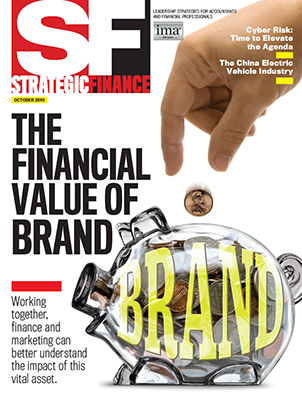Working in the accounting field was very fulfilling. My career took off, and I got better positions with more responsibility. But it was hard to continue college at night. After nine years of taking classes sporadically, I finally earned my associate degree. I kept going, hoping to earn my bachelor’s degree eventually, but because of the demands of my job, I took fewer classes.
Then in 2014 I lost my job. I had been pursuing my degree for 39 years and still had seven classes to complete. I was an out-of-work controller, without a degree, in a tough employment market. I went back to college and in eight months received my B.S. degree in accounting.
I knew it wasn’t going to be enough.
On the advice of an employment counselor, I began attending IMA® chapter events. While networking, I made a discovery: Many of my peers who had earned certifications were enjoying better employment prospects than those with just a college degree. So I decided to look into getting certified. Because all my experience was in management accounting, the CMA® (Certified Management Accountant) became the logical certification for me.
I had learned how to study again my last time in college and knew if I went for my CMA, it had to be now. So I studied and took Part 1 but didn’t pass. Then I studied and took Part 2 but didn’t pass that either. I was pretty discouraged, yet I also recognized that I wasn’t as prepared as I could have been. I didn’t give up. Instead, I took online classes, did extra preparation, and focused especially on those areas where I knew I was weak, like cost accounting. I took Part 1 again and passed, and then I took Part 2 again and passed! It was the most difficult thing I’ve ever done, but the validation of my hard work made it all worthwhile.
I’ve had my certification for two years now, and it definitely has given me more confidence in my daily work. Eventually I secured my current job at a small, family-owned business, and I know I’m viewed differently by my peers because I’m a CMA. They see me as someone who’s experienced, someone who can make decisions, and someone who has more than just a college education.
I’ve also become a strong advocate for IMA and the CMA: I’ve joined the board of directors of the New Hampshire Chapter, mentored potential CMA candidates, and even spoken to a high school accounting class about management accounting and the CMA.
Today I continue to counsel students to sit for the CMA exam soon after college and not wait 40 years like I did. Not everyone needs to be a late bloomer like I am.

October 2019



